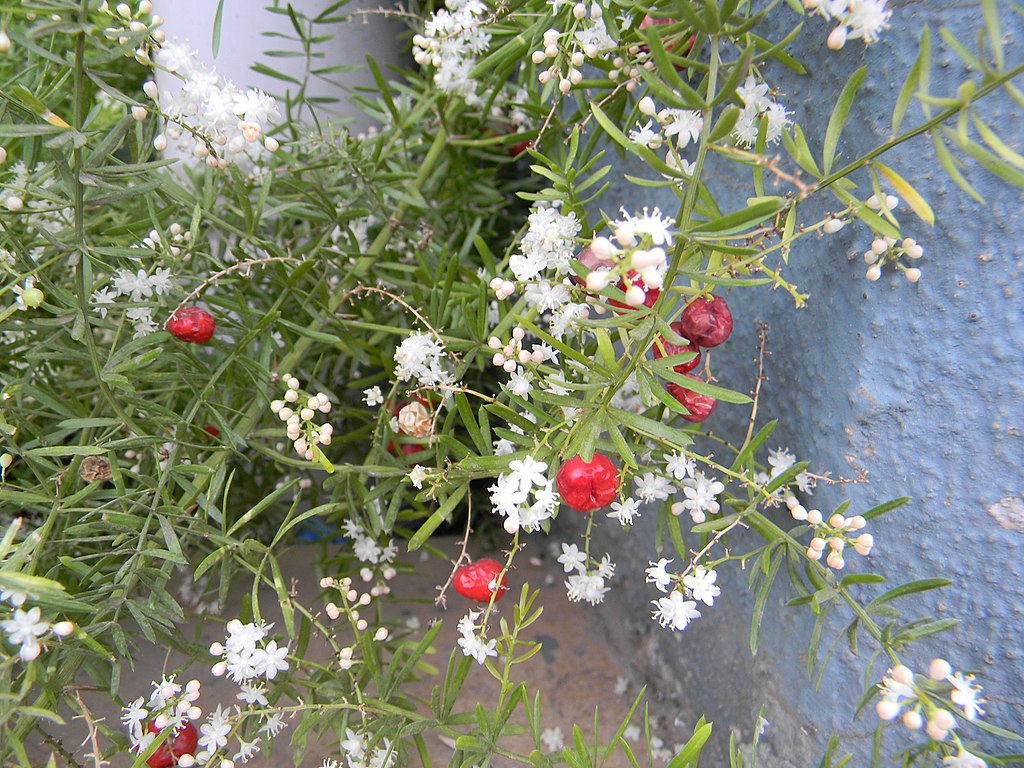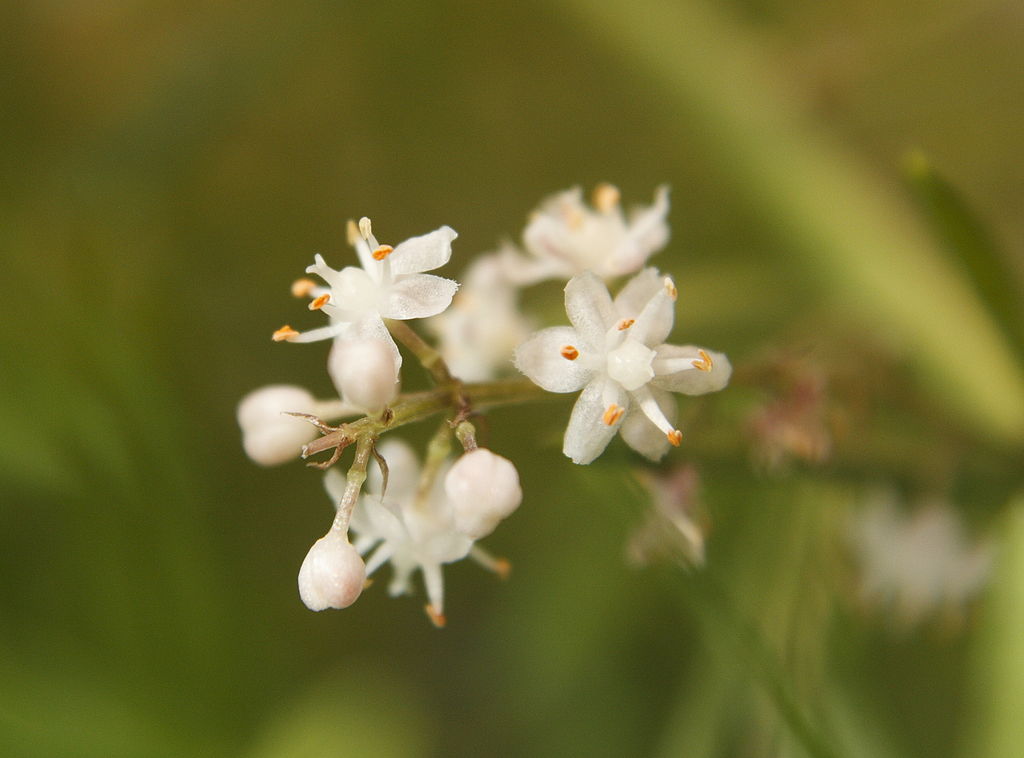 Asparagus racemosus is a herb traditionally used in Ayurvedic medicine as an adaptogenic herb. In this regard, extracts of the herb may provide an anti-stress effect on the consumer and the effects of the herb are non-specific, but improve the general resistance of the individual to stressful events. In Ayurvedic medicine, tonics that have general anti-ageing, anti-stress, immune and cognitive stimulating effects are called rasayanas, and Asparagus racemosus is considered to fall into this category as an adaptogen. As with other adaptogenic herbs such as Panax ginseng, jiaogulan, ashwagandha, Siberian ginseng, mimosa, brahmi and gotu kola, Asparagus racemosus contains a group of phytochemicals called saponins that may provide the anti-stress effects of the herb. Studies have shown that extracts of Asparagus racemosus standardised for saponin can reduce the effects of experimental stress on rats. As stress is implicated in the development of mood disorders, Asparagus racemosus may have mood elevating properties.
Asparagus racemosus is a herb traditionally used in Ayurvedic medicine as an adaptogenic herb. In this regard, extracts of the herb may provide an anti-stress effect on the consumer and the effects of the herb are non-specific, but improve the general resistance of the individual to stressful events. In Ayurvedic medicine, tonics that have general anti-ageing, anti-stress, immune and cognitive stimulating effects are called rasayanas, and Asparagus racemosus is considered to fall into this category as an adaptogen. As with other adaptogenic herbs such as Panax ginseng, jiaogulan, ashwagandha, Siberian ginseng, mimosa, brahmi and gotu kola, Asparagus racemosus contains a group of phytochemicals called saponins that may provide the anti-stress effects of the herb. Studies have shown that extracts of Asparagus racemosus standardised for saponin can reduce the effects of experimental stress on rats. As stress is implicated in the development of mood disorders, Asparagus racemosus may have mood elevating properties.

One caveat about Asparagus racemosus is that some animal data suggest that it might have teratogenic effects. Therefore, as with most herbs, care should be taken in those females who are at risk of getting pregnant. Image is Asparagus racemosus. Image from: By Neha.Vindhya (Own work) [CC BY-SA 3.0 (https://creativecommons.org/licenses/by-sa/3.0) or GFDL (http://www.gnu.org/copyleft/fdl.html)], via Wikimedia Commons.
The mood elevating properties of Asparagus racemosus have been investigated in animal models. For example in one study, methanol extracts of Asparagus racemosus were prepared to contain 62.2 % saponins. These extracts were then administered to rats and for 7 days at various doses before the rats were exposed to experimental stress. The results of the study showed that the Asparagus racemosus extracts conferred significant antidepressant effects on the rats. In addition the researchers noted that the extracts were able to attenuate the fall in antioxidants seen following exposure to stress. Based on the way the rats responded to administration of 5-hydroxytryptophan but not to L-DOPA, the researchers concluded that the Asparagus racemosus extracts were probably having their effect through regulation of the serotonin, rather than dopamine system. Therefore Asparagus racemosus may have mood elevating effects through modulation of the serotonin systems of the brain, at least in rats.

Asparagus racemosus is a herb that is common to Nepal, India and Sri Lanka. The herb can grow to 2 meters in height and grows predominantly in rocky and sandy soils at higher altitudes. The leaves of the herb are shaped like pine needles, and it produces white flowers. Other common names for Asparagus racemosus include satavar, shatamull and shatavari. The plant contains a number of steroidal saponins including shatavaroside A, shatavaroside B, filiasparoside C, shatavarins, immunoside, and schidigerasaponin D5 (also called asparanin A), and these have been isolated from the roots. The flavonoid isoflavone 8-methoxy-5,6,4′-trihydroxyisoflavone 7-O-β-D-glucopyranoside has also been isolated from the plant. Image is Asparagus racemosus flowers. Image from: By Silk666 (Own work) [CC BY-SA 3.0 (https://creativecommons.org/licenses/by-sa/3.0)], via Wikimedia Commons.
In another study, researchers investigated the possible metabolic effects of Asparagus racemosus using in vitro experiments. The results showed that extracts of Asparagus racemosus were able to significantly inhibit the enzyme acetylcholinesterase and monoamine oxidase, but this was less effective than known acetylcholinesterase and monoamine oxidase inhibiting drugs. Also, the researchers noted that there was a positive correlation between the saponin content of the herbs and the enzyme inhibiting effects, suggesting that the saponins may have been causing the effects. In another study, Asparagus racemosus was evidenced to have anxiolytic effects similar to those of diazepam in animal experiments, but without evidence of sedation. In this experiment, the Asparagus racemosus extracts increased serotonin and noradrenaline levels in the brains of the rats and increased expression of serotonin receptors. The effects of the herbal extracts were evidenced to be caused by interaction with the GABA receptor.
Eat Well, Stay Healthy, Protect Yourself
RdB
